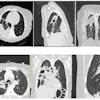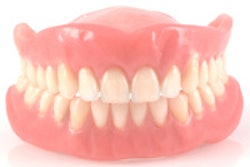Researchers from the University of North Carolina used liquid chromatography and tandem mass spectrometry to compare mucosal gene expression between individuals with and without denture stomatitis, according to a study presented at the recent International Association for Dental Research (IADR) meeting in Barcelona, Spain.
The process was used to identify salivary proteins known to have an association with candidiasis. Chronic denture stomatitis is linked with the presence of the parasitic fungus Candida albicans in the mouth, the researchers noted.
Oral palatal biopsies were obtained from 17 healthy and 15 C. albicans-infected stomatitis subjects for whole-transcriptome analyses using Affymetrix arrays. The presence of C. albicans was confirmed by cytology.
Microarray analysis of mRNA expression revealed 3,034 genes-in-play differentially expressed in C. albicans stomatitis. Of these, 235 genes were upregulated by a factor of two or more, including a number of chemokines, cytokines, and markers of epithelial suppression.
"Neutrophil recruitment activation, epithelial suppression, TLR2 pathway up-regulation, T cell activation, and bone resorption appear as major activation themes in stomatitis," the researchers concluded.
Copyright © 2010 DrBicuspid.com



















